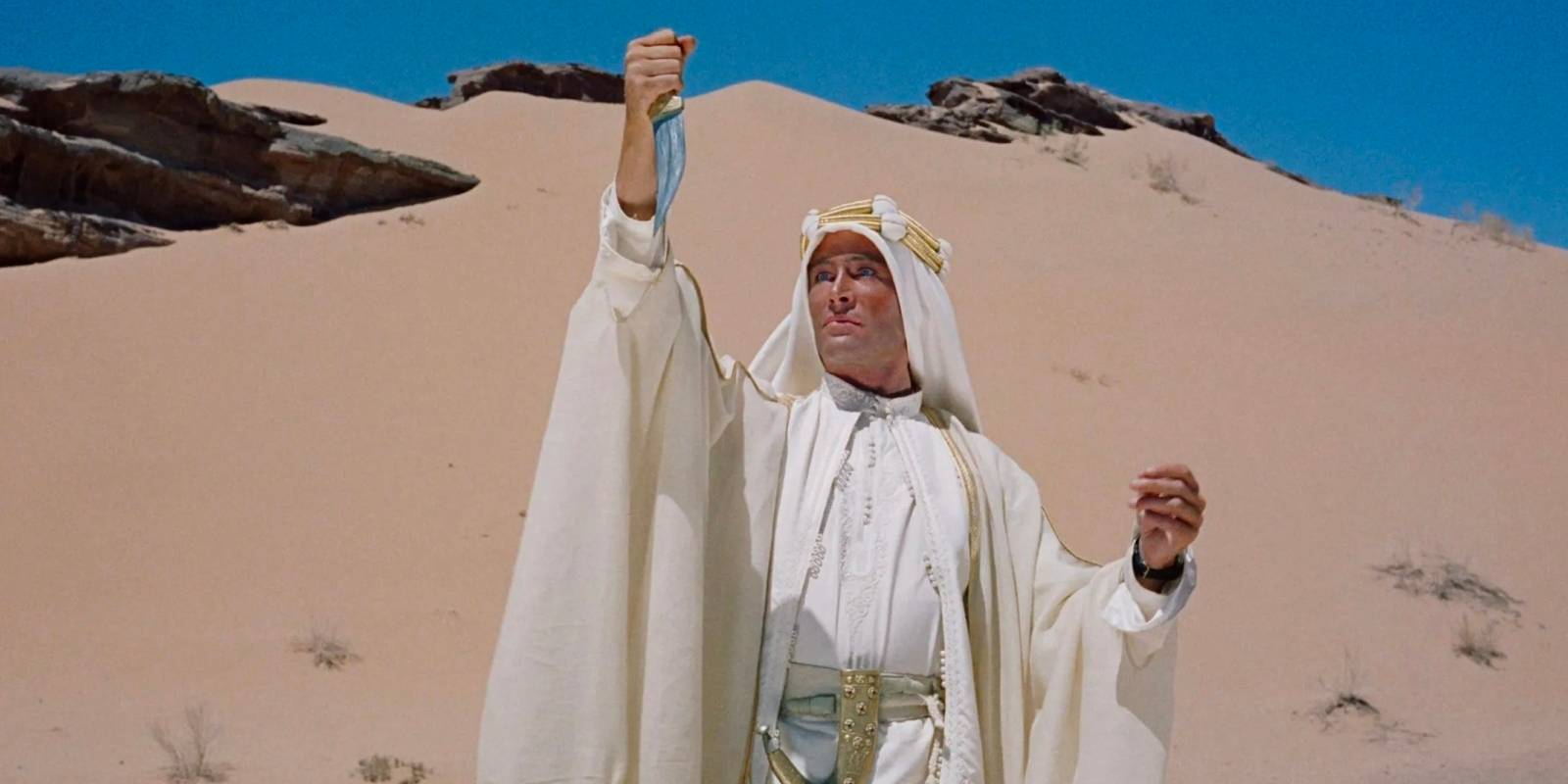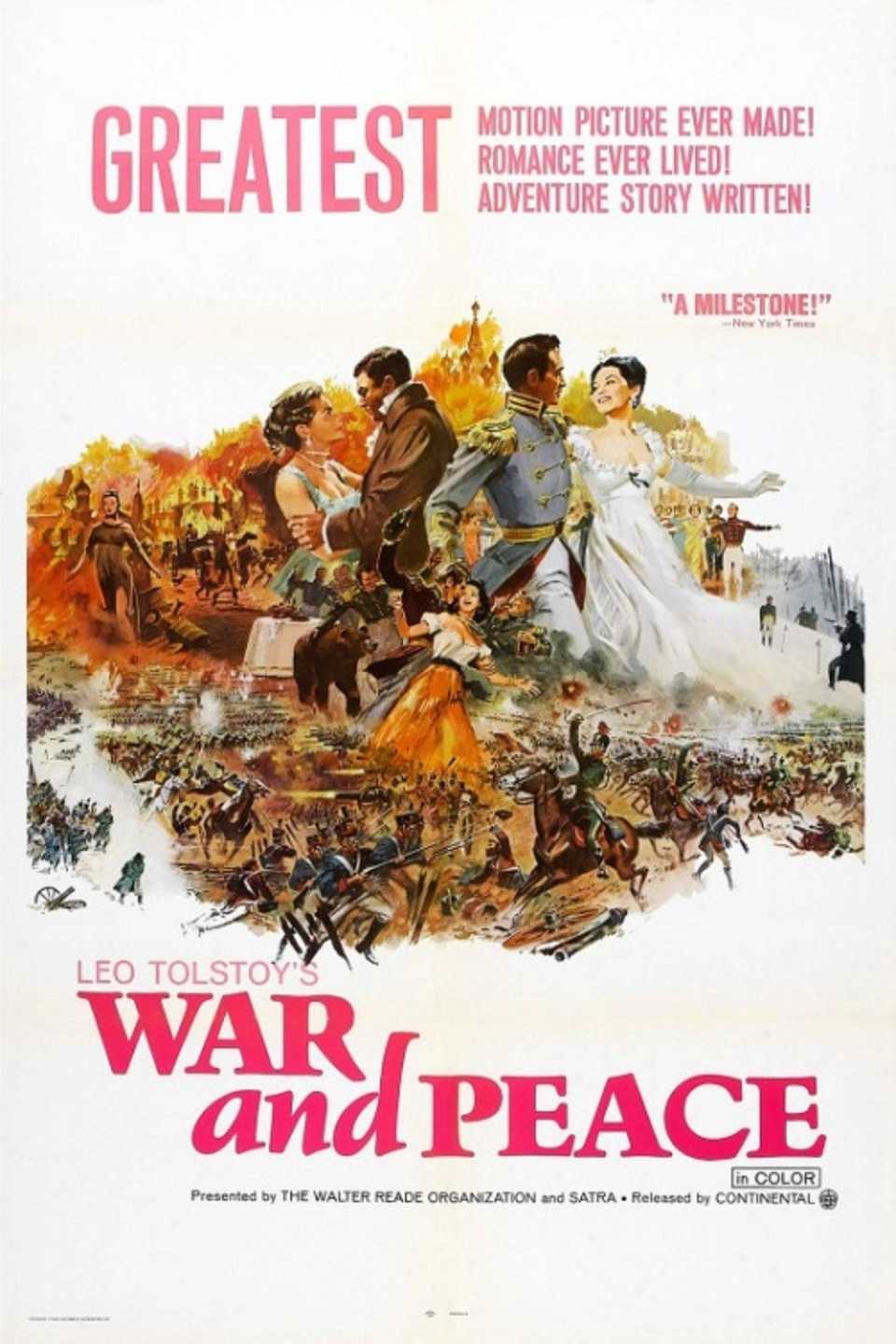
10 Best Epic War Movies, Ranked
Epics were particularly irresistible to audiences in decades past, and though there’s been a little more push-back against longer movies in recent years, some do still come out and resonate. James Cameron’s last few films demonstrate that pretty well, with Avatar and its sequel doing massive numbers at the box office, and then certain directors – even if they’re not making James Cameron money – are still finding acclaim with helming epic movies, like Martin Scorsese (see The Irishman).
Most of the time, epics are about historical events or individuals, and a good deal of the time, such historical periods are defined by war. Enter the following films, which can all be classified as both epic movies and war films. The ranking below will focus on movies based on actual wars, so even though The Lord of the Rings is a three-part epic and has a good many battle sequences, it feels a little strange to label them war films.
10
‘Doctor Zhivago’ (1965)
Few directors are as intrinsically tied to the epic genre as David Lean, who didn’t just make epics, but his most well-known (and arguably best, besides the appropriately briefer Brief Encounter) films tended to be epic in scope. And a handful of them also fall into the war genre, with the first of such movies worth noting being Doctor Zhivago, which did come out after the other two, but fell a tiny bit short quality-wise.
Emphasis on “tiny bit,” because Doctor Zhivago is still pretty amazing on a technical front, and has a level of ambition that can still be admired. It’s about a dramatic love affair playing out over many years, with such years including the First World War and the Russian Revolution, which technically began while World War I was still ongoing, and then finished a few years after the war’s end. Doctor Zhivago is about a tumultuous love in tumultuous times, with the whole thing being unapologetically sweeping, romantic, and long.
9
‘Gettysburg’ (1993)
Naturally, Gettysburg is a Civil War movie, being about the Battle of Gettysburg, which was fought over several days, claimed more lives than any other battle of the war, and ended up being a decisive one in the war’s eventual outcome. The film goes for realism above all else, meaning those after an intricate narrative or complex character arcs might be disappointed, but also, Gettysburg really doesn’t have that kind of thing on its mind.
If 254 minutes isn’t long enough for you, there’s also a director’s cut of Gettysburg that clocks in at just over four and a half hours.
It wants to showcase the battle in question as authentically as possible, all the while covering it in its entirety, and thereby having the whole thing play out over the course of more than four hours. It’s an exhausting film, but the size and non-stop intensity of it all is the point… and, if 254 minutes isn’t long enough for you, there’s also a director’s cut that clocks in at just over four and a half hours (271 minutes).
8
‘Napoleon’ (1927)
If you go back 100 years in time, you’ll find something that’s genuinely an all-time great war movie: Napoleon. Also, this is one of the longest war films ever made, more than earning the right to be labelled an epic with its 330-minute runtime. Further, it was originally envisioned as the first part of a multi-movie saga about Napoleon Bonaparte, but the whole of Abel Gance’s lofty project didn’t come to fruition (though he did direct another Napoleon-related movie in 1960 called The Battle of Austerlitz).
As for 1927’s Napoleon, it’s mostly about the titular figure’s early life, going back as far as childhood before finishing the movie with some of his early military accomplishments. It’s a dazzling film to watch on a technical front, because Gance was very much ahead of his time, as a director. It’s long, and not exactly fast-paced in any kind of modern sense (like, obviously), but if you’re interested in the history of cinema and the silent era, it is an essential watch.
7
‘Spartacus’ (1960)
Stanley Kubrick was no stranger to war movies, since he directed half a dozen all up (which is a lot, considering he ultimately directed just 13 feature-length films). Spartacus is one of them, and is a great film, though it doesn’t have as many “Kubrickian” trademarks compared to his other movies, since he wasn’t originally the film’s director, and replaced original director Anthony Mann during production.
There are some other epics Spartacus can be compared to, like Ben-Hur and Gladiator, but Spartacus feels more tied to the war genre than those, so that’s why it’s being included here. Also, even if it might not feel entirely like a Stanley Kubrick film, it’s still an impressive production and delivers a great deal of spectacle, all the while boasting a great cast, with various actors here – like Kirk Douglas, Laurence Olivier, Charles Laughton, and Tony Curtis – doing career-best (or near-career-best) work.
6
‘The Bridge on the River Kwai’ (1957)
A World War II movie that won Best Picture at the Oscars, and also another classic by David Lean, The Bridge on the River Kwai is a film that holds up exceptionally well, even with it being nearly 70 years old. It’s about some Allied prisoners of war being made to build a bridge, and the complications that ensue when some other Allied forces make a plan to destroy the same bridge.
It’s anti-war in the sense that it tells a story where no one can really win, and some kind of tragedy seems inevitable. The Bridge on the River Kwai does this without being depressing or miserable to watch. Like, what it has to say is downbeat, but the way it’s executed – and the way it’s paced, for the most part – also makes it very engaging. It’s not as epic in scale as some of these other epic movies being talked about, but it’s still a large-scale production and pretty lengthy runtime-wise (at 161 minutes).
5
‘The Human Condition’ (1959-1961)
One 10-hour movie split into three (still very long) parts, The Human Condition lives up to having a title that broad and all-encompassing, all the while more than justifying its epic runtime. It’s about World War II, and one Japanese man’s efforts not to have to fight in it. This proves easier said than done, as he eventually has to take part in active duty, and then also finds himself having to survive and get home after the war eventually ends.
So, The Human Condition is a more traditional war film in its second part, feels like a pre-war movie for much of its first part, and then becomes like a post-war/survival movie in its third and final installment. The entirety is undeniably epic, and also very confronting, because few punches are pulled in showcasing the horrors of war, and so there are parts of this decades-old film that still, quite surprisingly, remain very impactful.
4
‘The Great Escape’ (1963)
While there’s a good deal of entertainment to be found in The Great Escape, it also feels somewhat – and maybe surprisingly – realistic, owing to the film being based on real events. There’s a prisoner of war camp that has a large collection of Allied prisoners who have all escaped, or tried to escape, before, and even though they’re in a place that’s designed to be inescapable, escaping is what they ultimately feel compelled to try and do.
That’s all the film needs to be, and it manages to stretch it out to almost three hours, with the size of the cast making that runtime feel natural/necessary. The Great Escape is also paced exceptionally well and gets the balance between tension and spectacle just right. You get suspense and catharsis here, at different points, but not always in the ways you’d expect. It all just works, and it’s more than great enough to earn the right to have “Great” in its title.
3
‘Ran’ (1985)
The best Akira Kurosawa epic probably remains Seven Samurai, but Ran is a more than worthy runner-up, and this one’s also actually a war movie (Seven Samurai does feature a battle, but isn’t really a war film). Ran is inspired by King Lear and some people from Japanese history, telling the story of an aging warlord trying to divide his kingdom among his children, which ends up being easier said than done.
The whole endeavor causes family drama that then balloons to wide-scale conflict, with the film’s beauty giving way to some hellish-looking sequences of combat and bloodshed that are still visually striking, just in a far darker way. Ran is easily one of the best epics of the past few decades, and though it wasn’t Kurosawa’s final film, it was arguably his last masterpiece, impressively helmed and released when the director himself was well into his 70s.
2
‘Lawrence of Arabia’ (1962)
Lawrence of Arabia is such an immense film, and an almost daunting one to talk about and digest. It’s long, sure, but it’s also so tightly packed with narrative, interesting characters, and sequences that are some of the most spectacular in cinema history. It’s also unusually intimate for an epic, as it really tries to get to the core of who T.E. Lawrence was as a person, despite characters – and the film itself – admitting that he was something of an enigma.
So, you get a great character study here, alongside an epic narrative that has adventure movie qualities at times, while also being a World War I movie at other points. It’s so well-controlled, thought-out, and executed that it being so many different things at once never feels messy or anywhere close to incoherent, and there’s good reason why it’ll fairly often get called one of the best epics – if not the best epic – of all time.
1
‘War and Peace’ (1965-1967)
So, if you want to disqualify War and Peace for technically being released in four parts, then sure, Lawrence of Arabia is the best epic that’s also a war movie. But this version of War and Peace was a Lord of the Rings/Human Condition kind of deal where the whole thing was envisioned as one big epic, and it was first screened in parts simply because it’s hard to get most people to sit in one room for seven hours, even with an intermission or two.
War and Peace does serve as a great adaptation of the epic novel of the same name, obviously not covering everything, but certainly translating a lot that matters from the page to the big screen. It’s like an arthouse film on an epic scale, since there are so many odd choices made as far as the directing and cinematography are concerned, but such eccentricities impress rather than detract or distract. It’s a wild but somehow coherent epic that plays by its own rules, and even when judged among other movies released in parts, or exceeding several hours in length, nothing else really compares, as far as size and ambition are concerned.

War and Peace
- Release Date
-
March 14, 1966
- Runtime
-
393 Minutes
- Director
-
Sergey Bondarchuk
- Writers
-
Sergey Bondarchuk, Vasiliy Solovyov, Leo Tolstoy













